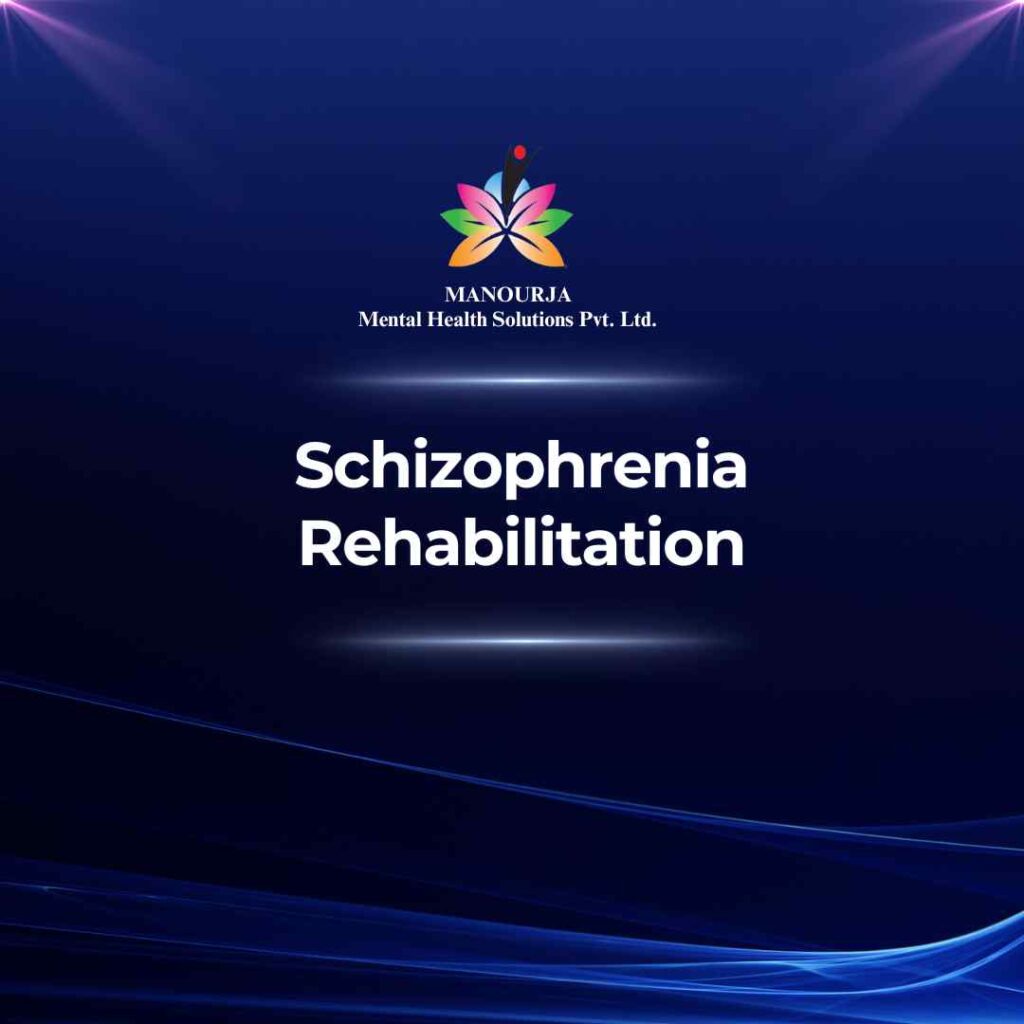Schizophrenia Rehabilitation

Schizophrenia is a severe mental disorder involving profound disruptions in thinking, affecting language, perception, and the sense of self. It mostly includes psychotic experiences, such as hearing voices or delusions. Recognizing the early signs and symptoms can significantly impact the effectiveness of treatment and the quality of life for those affected.
Signs and Symptoms of Schizophrenia
- Positive Symptoms: These include delusions (false beliefs), hallucinations (seeing or hearing things that are not there), thought disorders, and movement disorders (agitated body movements).
- Negative Symptoms: These refer to reductions or deficits in normal emotional and behavioral states, such as reduced speaking, lack of emotional expression, diminished ability to initiate and sustain planned activities, and social withdrawal.
- Cognitive Symptoms: These involve problems with attention, certain types of memory, and the executive functions that allow us to plan and organize. Cognitive impairment can significantly affect the person’s ability to lead a normal life.
Indicators for Outpatient Psychosocial Rehabilitation (OPD)
- Milder Symptoms: Patients who display symptoms but can still function semi-independently may be suitable for OPD where they can maintain some normalcy in daily activities.
- Stable Condition: Patients who are stable on their medication and have mild symptoms that do not pose an immediate risk to themselves or others.
- Strong Support System: Availability of a supportive environment at home that can provide daily care and support.
Indicators for Inpatient Psychosocial Rehabilitation (IPD)
- Severe Symptoms: Patients exhibiting severe, acute symptoms such as profound psychosis, significant cognitive disturbances, or those who are a danger to themselves or others.
- Poor Medication Response: Patients who have not responded adequately to outpatient treatment or who need their medication and treatment response closely monitored.
- Lack of Support Structure: Patients who do not have a stable home environment or adequate support system, making outpatient treatment unfeasible.
Factors Influencing the Decision
- Severity and Nature of Symptoms: More intense or dangerous symptoms often necessitate more controlled care settings.
- Safety and Risk Considerations: The potential for self-harm or harm to others can necessitate inpatient care.
- Support Systems and Living Conditions: The presence or absence of a supportive and stable living condition is crucial in deciding the type of rehabilitation needed.
How Psychosocial Rehabilitation Aids in Treating Schizophrenia
Psychosocial rehabilitation for schizophrenia aims to restore the individual’s functional abilities, manage symptoms, and improve quality of life through structured therapy and support.
Techniques and Approaches Utilized at MANOURJA
- Cognitive Behavioral Therapy (CBT): Used to address delusions and hallucinations, helping to challenge and modify distorted thoughts and perceptions.
- Social Skills Training: Focuses on improving communication skills and social interaction abilities.
- Vocational Rehabilitation: Helps patients develop occupational skills for better job opportunities and independence.
- Assertive Community Treatment (ACT): Intensive, team-based approach for individuals living in the community with severe symptoms of schizophrenia.
- Family Therapy: Educates and engages family members in the treatment process, improving the support network for the patient.
Steps Followed at MANOURJA for Rehabilitation
- Comprehensive Assessment: Evaluation of psychiatric symptoms, social functioning, and personal history to tailor an individualized care plan.
- Development of a Treatment Plan: Integration of medical and psychosocial treatments tailored to patient needs and symptoms.
- Implementation of Structured Interventions: Regular sessions utilizing various therapeutic techniques based on the individual’s specific needs.
- Continuous Monitoring and Evaluation: Regular reassessment of treatment effectiveness and patient progress, making adjustments as necessary.
- Community Integration and Relapse Prevention: Planning for transition back into the community with ongoing support to manage illness and prevent relapse.
“Every day brings new strength and new thoughts.”
